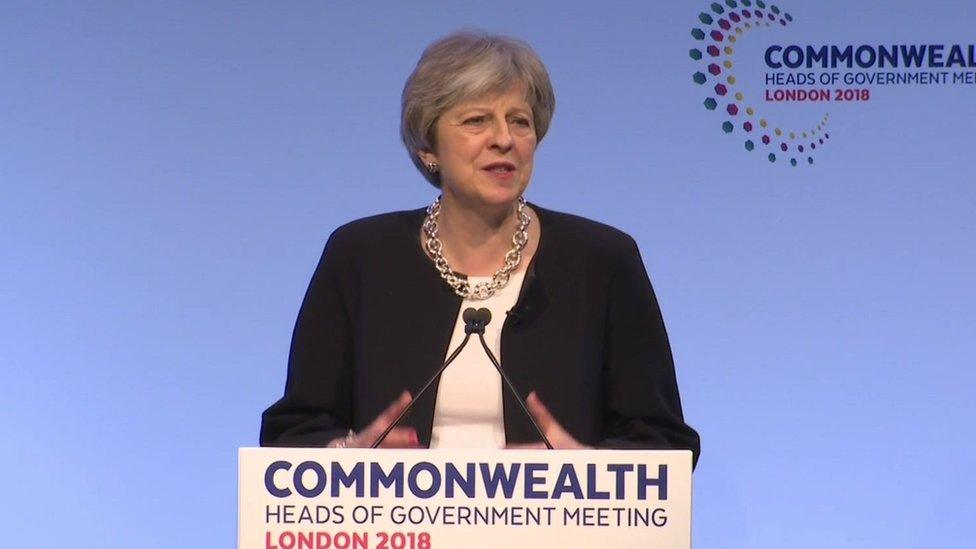UK makes £212m Commonwealth education aid pledge
- Published

Theresa May has called for "concrete measures" to ensure girls in Commonwealth countries spend at least 12 years in education.
The prime minister pledged £212m, which Downing Street said would allow almost one million more girls to go to school.
Too often they were forced out by "discrimination, poverty, or simply the expectations of society", she said.
It comes as Commonwealth leaders gather in London for their summit, which is held every two years.
Formerly known as the British Commonwealth, the Commonwealth of Nations is a loose association of former British colonies and current dependencies, along with some countries that have no historical ties to Britain.
Speaking to an audience including Microsoft founder and philanthropist Bill Gates, Mrs May said international experts agreed young people need 12 years of quality education if they are to fulfil their potential.
"Across the Commonwealth, tens of millions of young people - usually, but not always, girls - are denied the education that would allow them to get on in life.
"All too often, young people receive only the most basic education before being forced out of school through discrimination, poverty or simply the expectations of society."
Announcing the £212m from the foreign aid budget, she urged Commonwealth nations to agree to the 12-year goal, calling for "concrete measures that will allow it to become a reality".
She also focused on the fight against malaria, saying the Commonwealth has a "particular duty" to tackle the disease.
"We cannot, in good conscience, talk about the young people of the world, about securing a legacy for our children and grandchildren, without tackling a disease that, worldwide, kills one of them every two minutes," she said.
The flags of Commonwealth nations are flying at Westminster ahead of the summit
Mrs May also said the UK would support any Commonwealth nation seeking to reform "outdated" legislation which criminalised same-sex relationships or failed to protect women and girls.
"As a family of nations we must respect one another's cultures and traditions but we must do so in a manner consistent with our common value of equality - a value that is clearly stated in the Commonwealth Charter.
"Nobody should face discrimination or persecution because of who they are or who they love and the UK stands ready to help any Commonwealth member wanting to reform outdated legislation that makes such discrimination possible."
The prime minister also used her speech to urge the Commonwealth to work together to combat cyber threats to security.
"I look forward to all our members agreeing a new cyber declaration. A powerful statement of intent, it will ensure that the internet remains free and open across the Commonwealth.
"It will help protect our people and our businesses from ever more sophisticated digital threats. And it will do much to counter those who would abuse the freedom of the internet to undermine our values, our security, even our democracies."